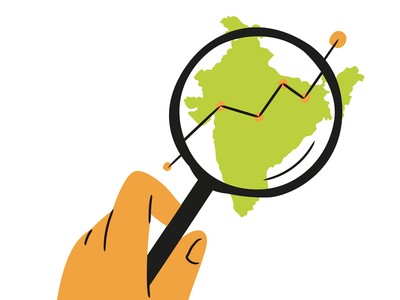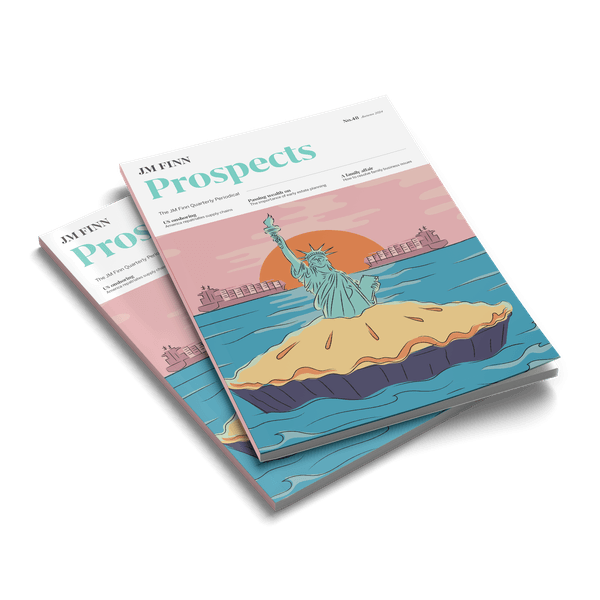Halma
Equity Market Cap (M) £9,776
Industrials
CEO Marc Ronchetti, CFO Steve Gunning
Halma is a highly acquisitive industrial holding company that owns a diversified portfolio of c.50 underlying businesses. The portfolio is angled towards the themes of ‘safer, cleaner and healthier’, providing critical products and services often required by regulation such as fire detection systems, emergency shut-offs, food and water analysis testing and disease diagnosis.
Halma completed eight acquisitions across the portfolio in the 2024 financial year, a mix of smaller bolt-ons and larger standalone businesses. Despite representing a record spend, Marc doesn’t see this as the beginning of consistently higher annual acquisition spends, nor does he see a requirement to increase the average size of business acquired. Many of Halma’s businesses have now grown large enough to conduct their own bolt-ons.
Halma has compounded revenues at a double-digit rate over the last 10 years, with contributions from organic growth and mergers and acquisitions. During this time, it has been rare to see all three business segments perform strongly all at once. This, Marc says, is a testament to the resilient through-cycle portfolio Halma has built and continues to evolve. We saw this in the 2024 financial year, where strength in Halma’s Environmental and Analysis segment more than offset weakness in Healthcare to deliver +6% group organic growth.
There is however a price to pay to own a company of Halma’s quality. Its forward price/earnings ratio of 29.1x makes it one of the most expensive UK industrial companies on a relative basis. And, whilst Halma has a very strong acquisition track record, acquiring 5-8 businesses per year carries execution risk regardless of the due diligence and integration infrastructure Halma has in place.
Kering
Equity Market Cap (M) €32,059
Consumer discretionary
Julien Brosillon, Investor Relations Manager
Kering is the second largest global luxury group. Through its houses, it offers apparel, leather goods, shoes, watches, jewellery, perfumes and cosmetics products globally. The group has a vertically integrated supply chain, ensuring quality and control of the design, manufacturing, marketing and retail of luxury goods.
Kering has been focusing on buying real estate to build solid foundations for the future of the company. Recently purchased properties include a building in Milan’s iconic Via Montenapoleone for €1.3bn, and two others in Paris and New York. This has been funded by debt, which has risen significantly to also fund its recent acquisition of Creed and a 30% shareholding in Valentino.
This is happening in the context of a slowdown in China and reduced demand: Chinese aspirational consumers, who helped drive Kering’s growth during the last two decades, are now keeping their purse strings tight. The weakening Chinese economy has meant consumers are more cautious and have reverted from the revenge shopping trend which we saw post China reopening after Covid. This led to Kering reporting in July that operating income could fall as much as 30% in the second half of the year. Other luxury companies have seen slower growth, but the transitional brands have been hit the hardest – with profit warnings issued by Gucci and Burberry this year.
Kering is trading at a discount to its peers, at a forward price/earnings ratio of 18x, with LVMH at 22x, Hermes at 49x and Richemont at 21x. This is due to operating margins being tighter and a less certain global economy, with leverage elevated. Times remain tough in the sector, but this seems appropriately reflected in the valuation.
Pennon
Equity Market Cap (M) £1,713
Utilities
Steve Buck, CFO
Pollution and overflows from the UK’s creaking and under-invested water infrastructure have been an easy target for the national press in the last two years, bringing heightened public and regulator scrutiny onto water companies.
Pennon, which owns Southwest Water and Bristol Water, has not been exempt from the challenges experienced by the UK water sector. At its 2024 financial year results in May, Pennon missed analyst estimates for both net debt levels and dividends, two metrics that are keenly watched by investors. UK water and sewerage companies are graded by how well they protect the environment through the Environmental Performance Assessment (EPA). The scoring system ranges from 1* to a 4* maximum. Pennon had hoped to achieve a 4* rating in 2024 after consecutive 2* ratings in 2022 and 2023, but has had to push this ambition back to 2025.
The new regulatory period, known as ‘AMP8’ will commence on the 1st April 2025. The regulator Ofwat published its draft determination of Pennon’s proposed business plan in July classifying it as ‘outstanding’, one of just two companies to achieve this classification. This was a good achievement for Pennon and the regulator's allowances for cost of capital and price increases were better than feared. However, the onus is now on the company to deliver on its lofty promises for AMP8.
CONSUMER DISCRETIONARYKering
CONSUMER STAPLESArcher Daniels Midland
Cranswick
FINANCIALSAviva
INDUSTRIALSBAE Systems
Bodycote
Diploma
DiscoverIE
Halma
IMI
GXO Logistics
Spirax Group
MATERIALSCroda International
INFORMATION TECHNOLOGYKainos Group
REAL ESTATEShaftesbury Capital
UTILITIESPennon Group
Jack Summers, Research Assistant
William McCubbin, Assistant Research Analyst




